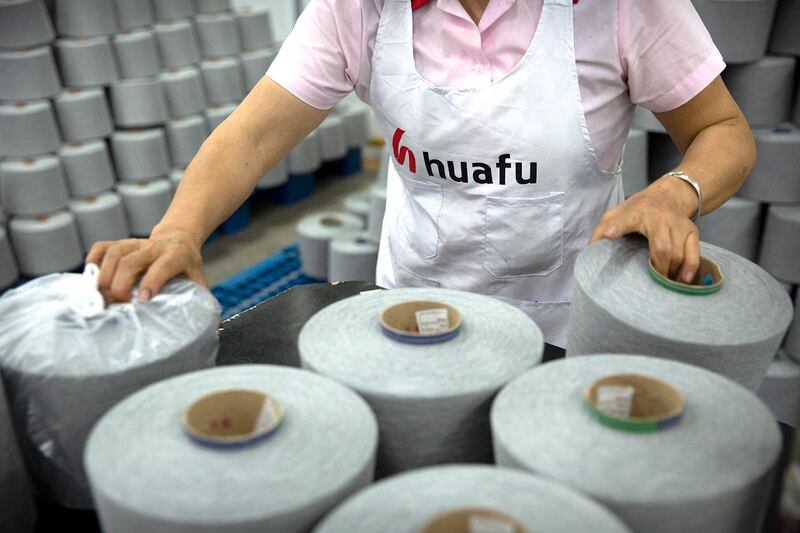The European Union has approved regulations forbidding the sale of products made with forced labor, a move that activists hope will rein in the abusive practice among Uyghurs in Xinjiang as well as in North Korea and other countries around the world.
The Forced Labor Regulation was approved on Tuesday, the last step in a decision-making procedure that began four years ago, the EU said in a statement.
About 27.6 million people work in forced labor conditions around the world, according to the EU. Most forced labor takes place in private industries, but some is imposed by government authorities, it said.
The new rule will require authorities of all EU member nations to ban from the EU market products or components that have been made – in part or whole – with forced labor.
“It will target perverse incentives enabling companies to benefit from forced labor in their supply chains,” the EU said.
Effective enforcement of the regulation will require EU nations “to significantly boost their capacity to investigate and effectively ban products made with forced labor,” according to Human Rights Watch.

The regulation was first discussed in 2020 when the EU was about to sign an investment agreement with China, said Helene de Rengerve, a senior advocate for corporate accountability at Human Rights Watch.
“The European Parliament decided there was no way it would approve such an investment agreement with China as long as the EU did not do something about forced labor in the Uyghur region,” she told Radio Free Asia.
That led the European Commission’s president, Ursula von der Leyen, to urge in 2022 that a specific instrument tackling forced labor be created.
Implementation of the regulation won’t begin until 2028, de Rengerve said.
‘A big win’
Maya Wang, the associate China director at Human Rights Watch, said this week’s approval was expected and yet still amounted to “a big win for human rights activists.”
“Although this is not country-specific, in large part, it is a response to the forced labor in the Uyghur region,” she said.
The EU’s regulation is “unfortunately” weaker than the U.S. version. However, activists can now focus on persuading the United Kingdom and Australia to adopt similar rules, she said.
U.S. President Joe Biden signed the Uyghur Forced Labor Prevention Act into law in 2021, which authorizes sanctions on foreign individuals and entities found responsible for rights abuses.
It also blocks the import of goods into the U.S. from Xinjiang without “clear and convincing evidence” that they were not made with forced labor.
“There is a presumption of forced labor under the UFLPA, so it’s not the authority that has to demonstrate that forced labor is happening in the Uyghur region,” de Rengerve said.
“It’s actually the companies that have to demonstrate that they are not linked in any way to the Uyghur region,” she said.
In contrast, the EU regulation doesn’t presume that all Xinjiang products are manufactured with forced labor, according to Wang.
“Nonetheless, it’s a big step,” Wang said. “The first priority is to acknowledge that certain regions are at the highest risk of forced labor. Without this acknowledgment, it becomes very difficult to monitor or enforce the regulations.”
China has angrily dismissed criticism of its treatment of Uyghurs as foreign interference in its internal affairs. But Beijing has sustained a series of international rebukes in recent years over its policies toward the 12 million Uyghurs and small numbers of ethnic Kazakhs, Kyrgyz and other Turkic language-speaking Muslims.
Translated by Shahrezad Ghayrat. Edited by Matt Reed and Malcolm Foster.
